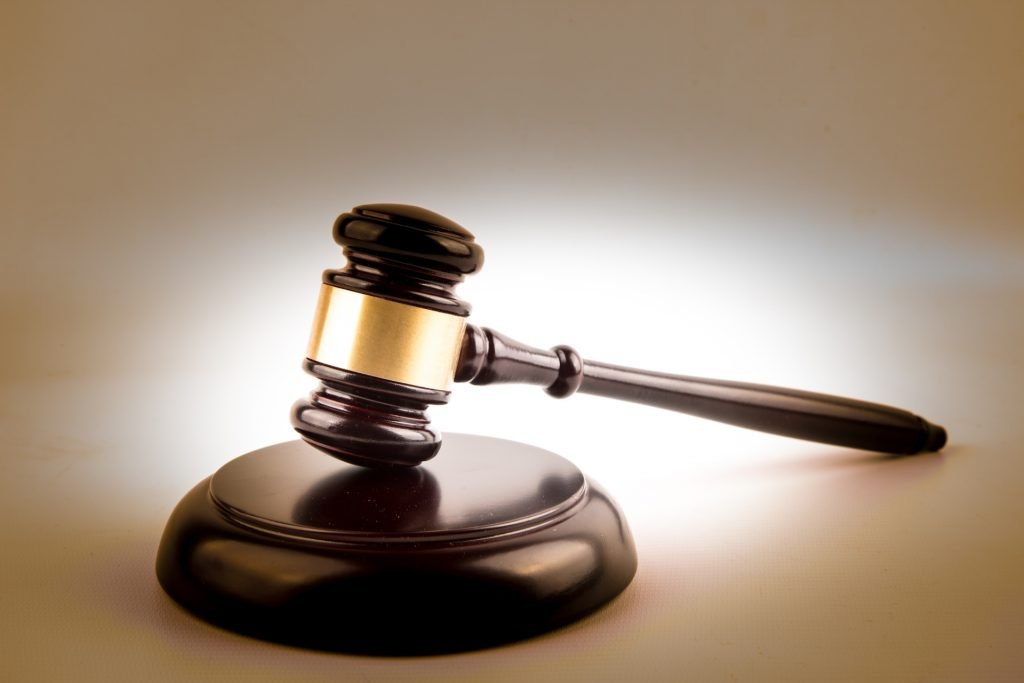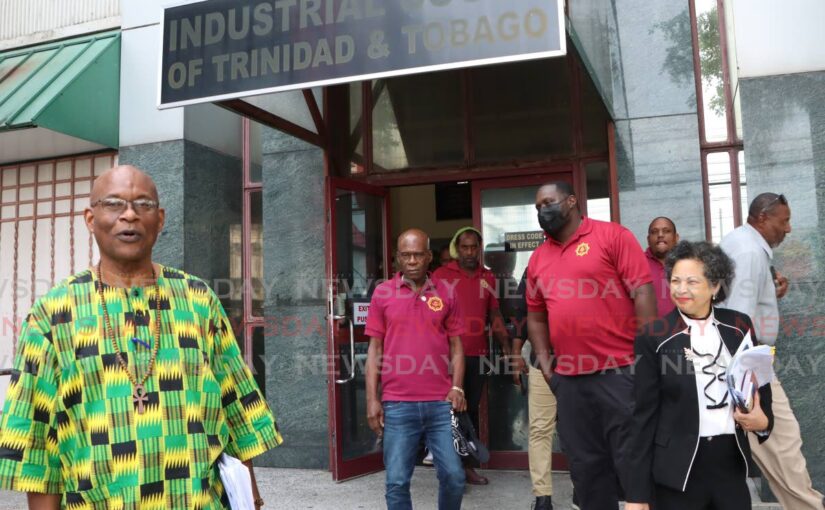Court: Police must provide accurate criminal records for bail applicants
 29 November 2024
29 November 2024


THE High Court has issued a critical ruling to address procedural deficiencies in managing and disclosing criminal records in bail applications.
In an order on November 28, Justice Trevor Jones ordered the police’s criminal records office (CRO) to provide the results of all its inquiries into pending matters in bail applications.
If a matter remains unresolved, the CRO must supply the next scheduled hearing date. If the police officer who charged the accused applying for bail cannot be contacted, this must also be disclosed.
Jones’s ruling covers all cases where an accused’s criminal records are submitted during bail applications. He also ordered a copy of the ruling to be sent to the Commissioner of Police for distribution to all CROs in the police service.
Jones was presiding over Kent Thomas's bail application and highlighted significant issues in the accuracy and reliability of records maintained by the police.
>
“It is evident that the current system the TTPS employs to update its criminal records is unreliable.
“This lack of reliability undermines the court’s trust in the accuracy of the records…Therefore, it is imperative that courts address the practice of requiring applicants to provide magistrates’ court extracts to update or correct the CRO’s record.
“This practice is unfair for several reasons.”
In his ruling, Jones recommended courts discontinue the practice of requiring applications to provide extracts in their applications.
Thomas, also known by several aliases, including "Austin Liverpool" and "Austin John," "Bummer," "Bammon," "Bandit Boy" and "Kent," is before the San Fernando court on kidnapping and firearm-related charges. He appeared in court in May 2022 and was denied bail.
In his bail application, the police provided a criminal record with over 25 charges recorded by the CRO.
The charges spanned multiple years, with only one resulting in conviction, nine determined in his favour, and 15 recorded as pending.
Discrepancies emerged between Thomas’ claims and the CRO records, with his attorney, Yves Jacques Nicholson, asserting eight of the 15 pending matters had been dismissed.
Nicholson asked the judge to resolve how courts should handle contested pending matters during bail applications and how accurate and timely information could be ensured in such proceedings.
>
In his ruling, Jones noted that a “pattern of inevitability” had emerged in disputed bail applications which shifted the burden of proof to the bail applicants to provide court extracts or other evidence to correct errors in the CRO records.
“The origin of this issue lies in the traditional reliance on a paper-based system for recording judicial decisions…
“While the Judiciary’s efforts to digitise court records have significantly mitigated these challenges for more recent cases, a notable gap remains for decisions that originated within the catchment of the paper-based system.”
However, he said, "If applicants are effectively being compelled to furnish evidence of their innocence as a prerequisite for other legal or administrative actions, this could be viewed as an unfair imposition, potentially violating the principles of justice."
He said this was not just a matter of semantics, but affected the process’s fundamental fairness.
“Despite the application originating from the accused, there still exists a presumption in favour of granting bail, unless there is a substantive reason to deny it.
“This presumption underscores the principle that liberty should not be restricted unless compelling grounds are presented to the court.
“It is clear that the starting principle remains and the presumption of bail favours the accused, with the burden on the prosecution to provide compelling reasons for the denial.”
Testimony from Sgt Lincoln Balkaran, a CRO officer, revealed incomplete or outdated records often result from gaps in communication between the police complainants and the CRO, since the process was heavily reliant on the former's providing the latter with updates on cases.
>
“What is even more troubling is the apparent absence of an auditing mechanism, which is essential for maintaining trust in the system, especially given the potential for human error.
“The implications are clear…courts must confront the harsh and undeniable reality that if they adopt a presumption of accuracy in these records, particularly when challenged by applicants, it will lead to significant unfairness.
“The State, through the CRO, cannot present information to the court that is knowingly inaccurate or when it is indifferent to the accuracy of that information."
So police records submitted to the court must be accurate to be deemed appropriate, he said, and it was solely up the State to ensure this accuracy.
The court recognised that inaccuracies in records from the CRO are a recurring issue, he said, and they created issues such as disregarding parts of records or postponing bail decisions until the information is verified.
“The critique underscores the importance of accurate and efficient record-keeping to ensure judicial processes are fair and timely.”
Jones said his ruling intended to encourage and motivate the police to audit their record-keeping system to identify and address flaws, “ultimately improving the reliability and accuracy of the information provided to courts.”
Jones also criticised the CRO’s internal policy on communicating pending matters in criminal records, which, Balkaran’s testimony indicated may not be disclosed to a court.
“The significance of this issue is heightened by the potential constitutional impact on citizens, necessitating fairness and transparency to maintain trust in the information provided to the court.”
>
For this reason he ordered the CRO to disclose the outcomes of its enquiries in all cases where criminal records are provided in bail applications.
“It is unfortunate that a court order is necessary to rectify the situation, but courts play a crucial role in the separation of powers, serving as a check and balance to ensure that other branches of government exercise their powers responsibly, especially when those powers directly impact fundamental constitutional rights.”
Thomas was denied bail because he could not provide the court with a satisfactory address for electronic monitoring.
The State was represented by prosecutor Astrea Stoute.
Related News

SWWTU hauled before the Industrial Court — Port protests halted

Trinidad and Tobago, India sign agroprocessing MoU

Defence Force sign ex-national youth player Christian Bailey

